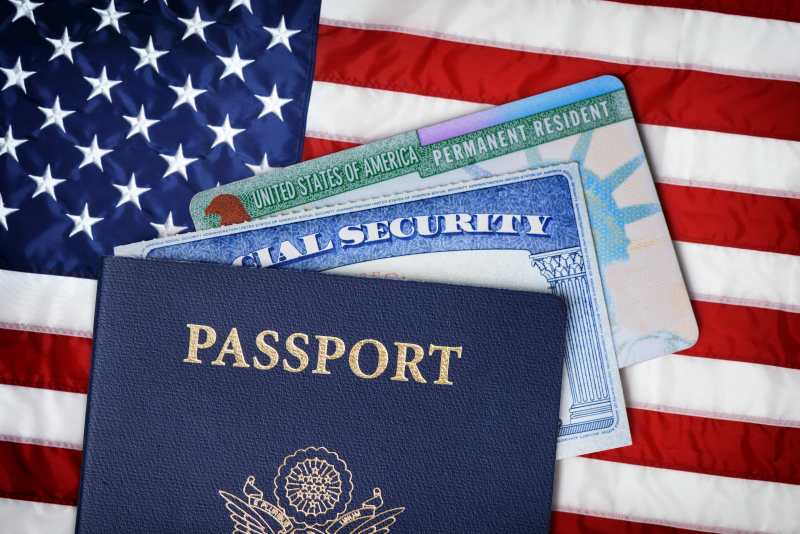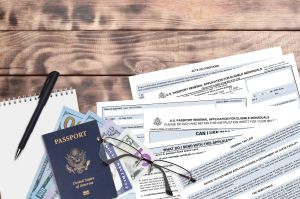How To Begin The Naturalization Process In Houston, Texas
TL;DR:
- Becoming a U.S. citizen starts with confirming your eligibility and gathering required documents.
- The main application is Form N‑400, filed online or by mail with USCIS.
- Houston applicants typically attend biometrics, an interview, and an oath at local USCIS offices.
- Working with a naturalization lawyer can help you avoid delays and handle complex situations.

Starting your citizenship journey is a big step. It’s the moment you move from living here to truly belonging here. While the legal process can feel complicated, breaking it into clear steps makes it manageable.
In Houston, the path to citizenship is shaped by local resources, cultural diversity, and a strong immigrant community. Whether you’ve been here for five years or decades, it helps to know exactly how to begin. That knowledge gives you the confidence to take the next step toward becoming a U.S. citizen.
Why Naturalization Matters For Houston Residents
Naturalization is a milestone that opens the door to full participation in American life. It gives you the right to vote in elections that shape your city, your state, and your country. You also gain the ability to apply for federal jobs, travel freely with a U.S. passport, and help family members join you in the United States more quickly than most permanent residents can.
In Houston, citizenship also means becoming an official part of one of the most culturally rich cities in the nation. There are people who naturalized so they could vote in local school board elections. Some were business owners who wanted to expand their companies abroad without visa worries. Others were parents who wanted to pass citizenship to their children without question.
Before you can enjoy these benefits, you’ll need to make sure you meet the legal requirements for naturalization. The first step is understanding the eligibility rules will help you plan your application and avoid delays.
Step 1 – Confirm Your Eligibility
Before you spend time and money filing for naturalization, make sure you meet all the requirements. USCIS is strict about eligibility, and even small oversights can set your application back by months. Here’s what you need to check first.
Age & Green Card Requirements
You must meet both the age and immigration status requirements to start your application. Naturalization applicants must be at least 18 years old and hold lawful permanent resident status. That means you’ll need a valid Green Card and a qualifying length of time as a resident before you file Form N‑400.
Continuous Residence & Physical Presence
Naturalization isn’t just about living in the U.S.; it’s about proving you’ve made it your permanent home. For most applicants, you need five years of continuous residence as a permanent resident, or three years if you’re married to a U.S. citizen.
You also must have been physically present in the U.S. for at least 30 months during that period (or 18 months for the three‑year route). If you’ve taken long trips abroad, you’ll need to show that you didn’t break your continuous residence.
Good Moral Character
USCIS reviews your history to ensure you’ve shown good moral character during the statutory period. This includes obeying the law, paying your taxes, and being honest in all your dealings with the government. Even small issues, like forgetting to disclose an old citation, can create delays.
Confirming your eligibility before you apply saves time, money, and stress. Once you know you meet the age, residency, and other requirements, the next step is to prepare a complete and accurate application packet.
Step 2 – Prepare Your Documents
Once you’re sure you qualify for naturalization, your next step is gathering the paperwork you’ll need. Having these documents ready will save time and prevent delays when you file Form N‑400.
| Document | Why It’s Needed |
| Green Card | Confirms your lawful permanent resident status, which is required for every application. |
| Tax Records | Shows compliance with federal tax obligations during your residency period. |
| Marriage or Divorce Certificates | Proves your marital status, especially if applying through marriage to a U.S. citizen, or if it has changed. |
| Proof of Selective Service Registration | Required for male applicants who lived in the U.S. between the ages of 18 and 26. |
| Travel Records | Verifies dates and destinations for all trips abroad to confirm continuous residence. |
| Employment or School Records | Demonstrates your ties to the U.S. and can support your case if you’ve had extended absences. |
Gathering everything in advance means you won’t have to scramble if USCIS asks for more information later. A little organization now makes the rest of your application process much smoother.
Step 3 – File Form N‑400
Filing Form N‑400 officially begins your naturalization process. You can submit it online for faster processing and easier tracking, or by mail if you prefer a paper application. Whichever method you choose, make sure you use the most current form and pay the correct fee to avoid rejection.
Accuracy matters more than speed. USCIS will compare your answers to your past immigration records, so even small errors or inconsistencies can raise questions. Double‑check every name, date, and address before submitting, and if your case is complex, a naturalization attorney can help you avoid costly mistakes.
Step 4 – Attend Your USCIS Appointments
Once you file your N‑400, USCIS will schedule in‑person appointments in Houston, starting with biometrics. At this quick visit, they’ll take your fingerprints, photo, and signature for background checks. Bring your appointment notice, Green Card, and valid photo ID to keep your case moving smoothly.
Next comes your naturalization interview, which includes the English and civics tests. The officer will review your application with you and may ask about your background or travel history. Preparing in advance, especially for the test, will help you feel confident and ready.
Step 5 – The Oath Ceremony
The oath ceremony is the final step in becoming a U.S. citizen. In Houston, it’s often held at the federal courthouse or a USCIS facility, sometimes with dozens or even hundreds of other applicants. You’ll take the Oath of Allegiance and officially become a U.S. citizen.
It’s a proud and emotional moment for many. Family and friends often attend to celebrate, and photographs are common. Afterward, you’ll receive your naturalization certificate, which you can use to apply for a passport and update your records.
Barriers To Watch Out For & How To Beat Them
Even when you meet all the requirements, some hurdles can still slow your naturalization process. Knowing what they are and how to deal with them will help you stay on track toward citizenship.
- Missing or Incomplete Documents – USCIS will not process your application without every required item. Create a checklist and double‑check it before filing.
- Travel Interruptions – Extended trips abroad can disrupt your continuous residence requirement. Keep travel short and well‑documented while your case is pending.
- Incorrect Form Information – Typos, wrong dates, or inconsistent addresses can lead to delays. Review your form multiple times before submission.
- Failing the Test on the First Try – You’ll get a second chance, but failing can delay your oath ceremony. Start studying well before your interview date.
- Unresolved Legal or Tax Issues – Criminal charges, unpaid taxes, or unfiled returns can stop your application cold. Resolve these issues early.
Naturalization isn’t just about following a checklist; it’s about being thorough and proactive. The more you prepare now, the smoother your journey will be when you’re standing at your oath ceremony.
Your Partners In The Journey To Citizenship
Becoming a U.S. citizen is a life‑changing milestone, and you don’t have to walk the path alone. At Houston Immigration Lawyers, we help you navigate every step, from preparing your application to celebrating at your oath ceremony.

Our team ensures your paperwork is complete, your eligibility is solid, and you feel confident for interviews and tests. If you’re ready to take the next step, schedule a confidential consultation today. Together, we’ll chart your clearest path to citizenship.
FAQs About Starting The Naturalization Process In Houston
Getting started with naturalization often raises the same core questions for many Houston applicants. Here are quick answers to help you take your next step with confidence.
How Long Does The Naturalization Process Take In Houston?
Most applications in Houston take about 6–9 months, though this can vary depending on USCIS workload and your personal circumstances. Delays can happen if your case needs additional review or if documents are missing.
Can I Travel While My Naturalization Application Is Pending?
Yes, but extended trips abroad could disrupt your continuous residence requirement. Keep your travel short and well‑documented until you become a citizen.
What Happens If I Fail The Citizenship Test?
You’ll have another chance to take the test within 60–90 days. You’ll only need to retake the parts you didn’t pass the first time.
These answers cover the basics, but every situation is unique. If you’re ready to start, a consultation with a qualified citizenship lawyer can give you clear guidance for your path forward.
About The Author: Kate Lincoln-Goldfinch
 Kate Lincoln‑Goldfinch founded Houston Immigration Attorneys in 2015 and serves as its managing partner. After earning her J.D. from the University of Texas School of Law in 2008, she launched her advocacy journey as an Equal Justice Works Fellow supporting detained asylum‑seeking families. Today, Kate concentrates on family‑based immigration, deportation defense & humanitarian relief, including asylum & VAWA cases. She volunteers as Pro Bono Liaison for the AILA Texas Chapter and was honored as a Top Immigration Attorney by Austin Monthly in 2024. A mother of two, Kate is driven by a passion for immigrant justice and building stronger communities.
Kate Lincoln‑Goldfinch founded Houston Immigration Attorneys in 2015 and serves as its managing partner. After earning her J.D. from the University of Texas School of Law in 2008, she launched her advocacy journey as an Equal Justice Works Fellow supporting detained asylum‑seeking families. Today, Kate concentrates on family‑based immigration, deportation defense & humanitarian relief, including asylum & VAWA cases. She volunteers as Pro Bono Liaison for the AILA Texas Chapter and was honored as a Top Immigration Attorney by Austin Monthly in 2024. A mother of two, Kate is driven by a passion for immigrant justice and building stronger communities. 

